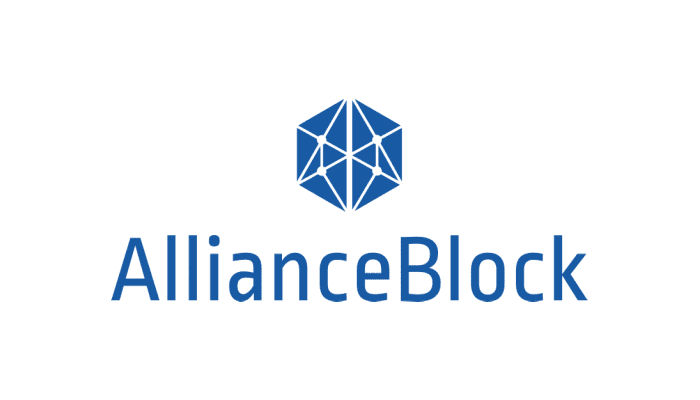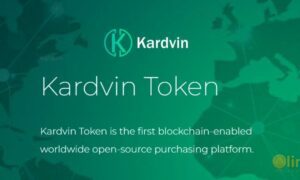A few weeks ago, the Binance Founder and CEO CZ announced a $100 million fund to be used to support projects that expand the Decentralized Finance (DeFi) ecosystem and, in particular, that drive collaboration with Centralized Finance (CeFi). AllianceBlock is a project that falls squarely into this category.
Owing to their successful token generation event, there will be many people new to AllianceBlock and what they are trying to achieve. As such, I thought that this would be the perfect time to take a look at how AllianceBlock will bring a raft of new investors, institutions, and capital, and why the project is an important step for DeFi as a whole.
What is AllianceBlock?
AllianceBlock is building the world’s first globally compliant decentralized capital market to provide the bridge between CeFi and DeFi. By doing so it aims to both offer an improved level of service for CeFi users, while bringing a whole new set of users to DeFi.
The firm is creating an ecosystem of stakeholders across the full spectrum of traditional and decentralised finance with a vision to create a fully decentralised and globally compliant capital market that will disrupt:
- Trade facilitation and execution
- Clearing, custody and settlement
- Securities services
- Data and information management
- Technology infrastructure
- Regulation and compliance
It will allow for the creation of a range of compliant structured digital asset products, including credit-linked notes, trackers/synthetics, derivatives, discretionary portfolios, static investments, and structured loans. These digital assets can be wrapped in globally compliant Actively Managed Certificates to provide dynamic investment solutions. Compliant derivative products can be created out of almost any utility token, security token, cryptocurrency, synthetic, crypto portfolio, or DeFi solution.
AllianceBlock will bring many of the same benefits as Bitcoin initially did with its application of decentralization:
- Censorship resistance – unlike the current situation in which there are centralized authorities such as banks and clearing houses, the network will be distributed
- Cost benefits – by eliminating intermediaries, participants are able to reduce their fees
- Security – rather than rely on central institutions to both a) act correctly, and b) avoid becoming a systemic risk to the wider market, a decentralized ecosystem brings increased resilience as it avoids single points of failure
However, just because something is decentralized, does not make it inherently better. The centralized CeFi service is not about to disappear tomorrow simply because it is now decentralized, or because assets can be tokenized. Nor can heavily regulated institutions use DeFi even if they wanted to, because of the burden placed upon them by regulators. To bring issuers, investors, institutions, traders, experts, advisors, and other service providers into this ecosystem, there needs to be tangible benefits beyond cost.
Capital market participants face a number of challenges in their current operations that makes participating in DeFi impossible. Foremost amongst these is the issue of regulatory compliance. Different countries have different regulations, and there is no common standard or code of conduct for the creation and management of tokenized assets.
How does AllianceBlock solve these issues?
AllianceBlock is building the AllianceBlock Protocol. Detailed more fully in their Whitepaper, it consists of three core layers. These combine to meet the greatest challenges institutions face.
- Cross Border Regulatory Compliance: Dynamic smart contract logic that integrates with existing legal structures and provides regulatory oversight, legal recourse, and upgradeability.
- Data Governance and Privacy: All data collected, processed, and disseminated is compliant with GDPR and MiFID II to simultaneously ensure user privacy and transparency of transactions.
- Transactions: Fully automated back-office processing, document production (inc. automated prospecti), regulatory submissions, and transactions.
These may not necessarily sound revolutionary. However, institutions spend billions each year on data governance and compliance. These same institutions also pay significant fines each year, for data and regulatory breaches. Regulations concerning these matters tighten each year, to the point where trying to assure compliance can now form as much as 10% of revenues for financial institutions.
AllianceBlock is building an end-to-end solution that can offer efficiency gains on current infrastructure products which can act as a bridge to DeFi. The capital market infrastructure provider (CMIP) market is estimated to be worth $200+ billion in 2020. Furthermore, it will be able to be plugged straight into legacy systems used by banks. This is crucial, as the older banks often comprise a labyrinth of software and hardware that prevent integration with new technologies. It also means that banks can avoid an expensive and time-intensive upgrade, thus lowering the barrier to entry.
With two years of building behind the company, the firm’s next steps are to finalize and roll out a product that corporate partners will be able to use to solve specific issues relating to the regulation and compliant use of tokenized assets, after which they expect to move to opening AllianceBlock up to a wider field of institutions.
Why should the DeFi world care?
Cryptoassets currently have a market capitalization of around $350 billion, with Bitcoin forming nearly $200 billion of that. The global securities market, meanwhile, is a $100 trillion industry. The digital assets outlined earlier in this article will be investable, bankable, fungible, and accessible to the entire regulated finance industry. AllianceBlock will turn all digital assets into real securities that are bankable and exchangeable in the approved global banking system. The potential for new inflows of institutional funds into digital assets and DeFi is significant.
Furthermore, AllianceBlock seeks to vastly improve process efficiencies, drive material cost reductions, save significant time, and unlock innovative new structured products as the traditional finance sector expands into the digital asset market. There exists a clear opportunity to bring those volumes into the DeFi ecosystem, but there is also the potential to redefine how markets can and should operate, by utilizing a digital and distributed ledger first approach rather than having to build around legacy firms and systems.
Additionally, it would bring a raft of attention, capital and talent. Much of the DeFi ecosystem that is now coming to fruition has been built by small pockets of people on relatively small investments. Some of the most successful have been built by individuals acting alone. What more could be achieved if there were more people aware of DeFi, or if there was increased funding? Increased capital flows would at the absolute minimum bring with them the added incentives for firms and individuals to devote money and resources to them, as the potential audience was now that much greater.
Recent years have also shown that DeFi benefits hugely from each new development. The work of one project adds as a springboard for the next, due to the composability of much of the code being produced. While DeFi is now able to replicate many of the functions of CeFi, there exists both much more to be done to achieve this, as well as the exciting notion of what new potential is yet to be uncovered.
This is why, by providing a bridge between CeFi and DeFi, AllianceBlock can bring huge value to both worlds simultaneously.
Freshly launched, but with plenty of work behind them
Although AllianceBlock only recently held their token generation event, the firm has been building for far longer. The company began work in 2018 and incubated at Level39, the accelerator housed in the heart of the financial world, London’s Canary Wharf, before moving to Station F, the world’s largest startup facility. They were also one of ten Fintech startups selected to join the Swiss based Kickstart Innovation class of 2019, a country which represents both the traditional world of finance through its investment banks and strong private wealth industry, as well as being a center for the budding crypto ecosystem.
AllianceBlock has experience from both CeFi and DeFi as a result, and this dual backing has helped the company to both navigate the DeFi landscape (such as partnering with Holochain) while also being able to form partnerships with CeFi institutions that will be key to success (including being selected in the incubator of Natwest, a British bank).
There exists a rare opportunity to redefine how capital markets operate, and with it, to enable capital inflows on a scale that DeFi is currently achieving just a fraction of. By eliminating many of the greatest current pain points financial firms currently face, this is what AllianceBlock is aiming to do with Decentralized Capital Market.



































